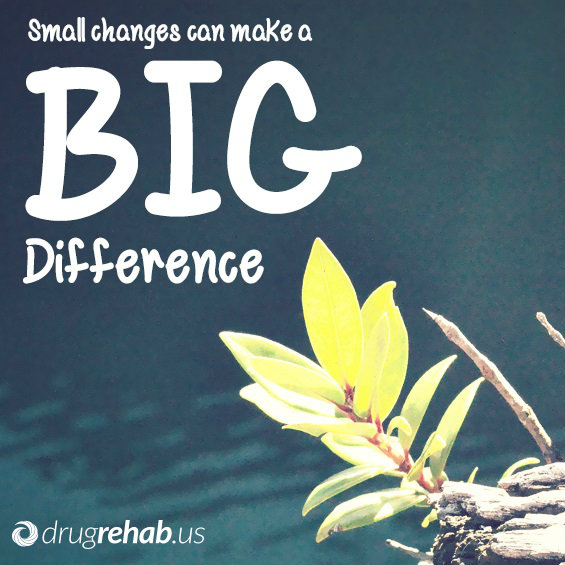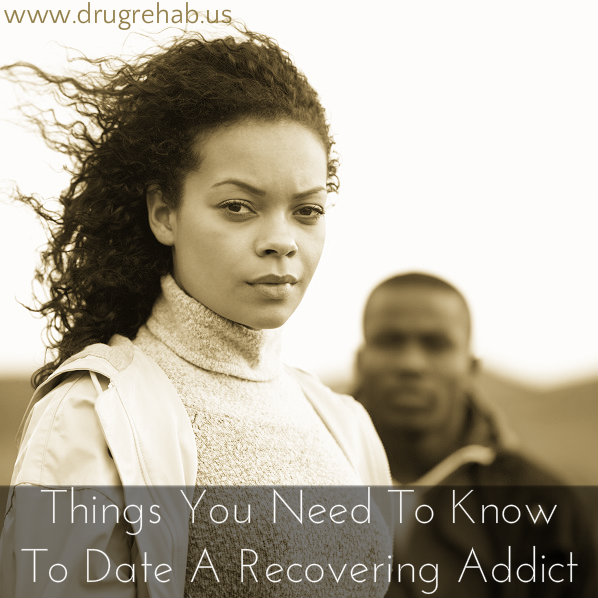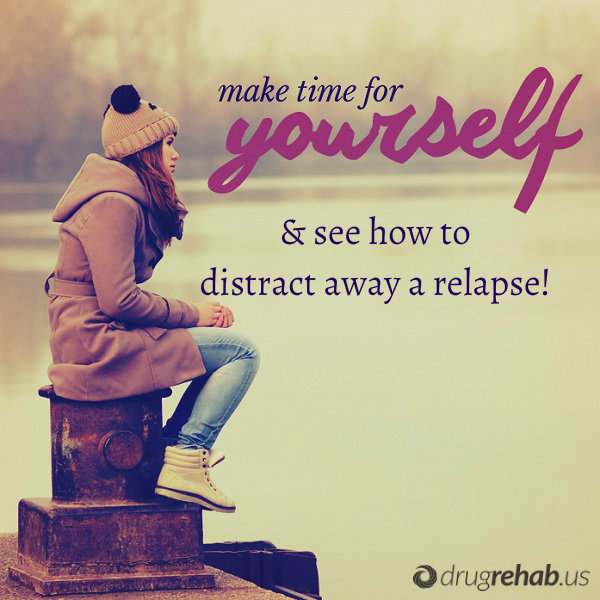06 Jul 2015
Sending Your Addicted Teen To College
Sending your child off to college can be a stressful period. This is probably the first time she has been away for longer than a stint at summer camp. There are also both realistic and symbolic transitions. She is becoming an independent adult by going off to school without you. She will be on her own to go through the academic and social experiences of college life, as well as the challenges. If your teen has struggled with substance abuse the stakes are higher than normal.
Addicted Teens
For some adults, it may seem unlikely that a young person going off to college could already be an addict. The scary truth is that teens do become addicted. The earlier they experiment with drugs or alcohol, the more likely they are to get hooked.
According to surveys, among college students participating in recovery programs on campus, the average age at which they first became addicted was 15. Common addictions in teens are to alcohol, marijuana and prescription drugs.
What To Do When Sending Your Addicted Teen To College
The following are several tips to help give your addicted teen the best shot when sending them to college and to help ease your concerns.
Check Out The Party Schools
You may be tempted to insist that your teen stay home and go to community college, and that might be the best choice. But if you both feel she is ready for the campus experience, make your selection carefully. You can easily find rankings of the biggest party schools in the U.S. These are best avoided.
In fact, you can find rankings that show you the opposite: the most sober schools. Brigham Young University, the Mormon-associated school in Utah, regularly tops this list. There are plenty of choices in schools that pride themselves on taking a sober stance. Of course, attending such a school cannot guarantee your child will stay sober, but it can help.
Look For Sober Living Opportunities
Regardless of which college your teen chooses, investigate their living arrangements. Many colleges now offer dorms or other types of housing for students who want to be sober. In these dorms your teen will live with other students who are in recovery from substance abuse. The support system built into this type of living arrangement can be a powerful way to resist the urge to party. Living in a dorm with students that are drinking and even using drugs may be more temptation than she can handle.
Continue With Treatment
Not all college campuses will have treatment programs for addicted students, but you can set up private therapy sessions to make sure your teen has the chance to keep up with her treatment. You can also help her look for support group meetings that she can attend. She may feel strong in her sobriety going into college, but the stresses and anxiety that come with such a major life transition may send her into a tailspin. Make sure she has support and treatment options ready in case she feels she needs them.
Also be sure that your teen has access to mental health services. Many addicted students struggle with depression and anxiety as well as other mental health issues. Check with the college’s on-campus health center to see what kinds of programs they have available, including emergency mental health services.
As you gather all of this information, be sure to keep your teen in the loop. Make her a part of her own sobriety so that she can take ownership and responsibility. You can’t be there with her forever. You have to let her go and give her a chance to be independent, but you can adequately prepare her to be successful.
Read Our Other Posts On What Parents Need To Know
25 May 2015
Can You Get Sober And Stay Sober Alone?
You’re determined to get over your problem with addiction. You’ve had enough of the horrible way alcohol and/or drugs are making you feel and the damage you are constantly doing to the people you love. You have lost jobs, relationships and maybe your reputation because of your drinking and drugging. You might even have some health concerns caused by addiction.
People are encouraging you to go to a treatment center. You want to stop your self-destructive tendencies but you don’t want to go anywhere. You are sure that you can quit any time you want to and you’re just about ready to prove it. You don’t believe you need anybody to show you how. You just need to stop using alcohol and drugs.
Powerful Hold Of Addiction
 It’s the great delusion of almost every addict or alcoholic that he or she has the freedom to choose to quit. The truth is that once you are addicted, it’s highly unlikely that you will be able to discontinue using your drug of choice without help. Drugs and alcohol are physically and mentally addicting. Mind-altering substances create a compulsion to continue their use even when they are destroying you.
It’s the great delusion of almost every addict or alcoholic that he or she has the freedom to choose to quit. The truth is that once you are addicted, it’s highly unlikely that you will be able to discontinue using your drug of choice without help. Drugs and alcohol are physically and mentally addicting. Mind-altering substances create a compulsion to continue their use even when they are destroying you.
The reason you can’t quit has little to do with lack of willpower. Drugs cause chemical changes in the brain that lead to craving. You are compelled to keep repeating the experience of getting high even when all the important things and people in your life are slipping away. It’s true that you may be able to quit for short periods of time, but you can’t seem to stay stopped. You are compelled to keep returning to a life of active addiction.
Why You Should Ask For Help
Getting sober requires much more than simply making up your mind that you want to quit. Withdrawing from certain chemicals, including alcohol, can be dangerous and possibly even life-threatening, and should usually be done under medical supervision. Getting through withdrawal is only the beginning. Once you have safely detoxed from chemicals, you have to learn a whole new approach to life and you will need the help of others to do that.
Up to now you’ve been in the habit of running from problems and uncomfortable emotions. With the help of other people, you can learn to cope with the stressors of life without turning to chemicals.
Having the help of people who share their experiences of living a sober life with you will make your journey much easier than it will be if you try to figure everything out on your own. When you go to meetings and reach out to others in recovery, they can tell you the mistakes they have made along the way as well as the things they have learned that have worked.
Remaining Vigilant To Recovery
The best way to get sober is to have the help of others to get through detox and early sobriety. As time passes, it’s equally important to remain connected to others on an ongoing basis and to remain aware that there is always the possibility of relapse.
Even though you’ve broken the cycle of daily habitual use of your drug of choice, you may find that you suddenly experience the compulsion to pick up a drink or a drug after you’ve been sober a while, and this may happen when you least expect it.
Addiction can be compared with other relapsing diseases such as diabetes or heart disease. There is no graduation date and no point at which you are cured. You have to keep doing whatever it takes to stay sober, and that includes going to meetings and staying connected to other people.
Recovery from drugs and alcohol is definitely possible, and in most cases, successfully recovering on a long-term basis is done by surrounding yourself with other people who truly understand.
Your support network can include a sponsor, friends both inside and outside of recovery circles and possibly counselors or addiction professionals. Those who follow the 12 steps of recovery believe that there is strength in numbers and are aware that each of the 12 steps includes the words “we” or “us.” Together we can do what none of us can do alone.
Discover 5 Tips To Understand Addiction And Quit Unhealthy Habits!
07 May 2015
The Truth About Methadone
Methadone maintenance is a treatment strategy for heroin addiction that has been helping people for decades. Methadone, like heroin, is an opioid drug. As such, it can help addicts maintain sobriety from heroin without experiencing the devastating withdrawal symptoms that lead so many back to the drug. Many people misunderstand methadone and believe that it is just another form of drug addiction.
Learn the truth about this effective harm reduction strategy with these methadone myths and facts.
Methadone Myths And Truths
 Myth: Methadone is just a substitute for heroin. Although it is also an opioid, methadone is not a substitute drug. It is a valid medical treatment for heroin addiction. What happens in detox from drugs, particularly from heroin, is withdrawal so terrible that few people can experience it without going back to using. For a drug as serious as heroin, withdrawal and cravings last for a long time. Methadone helps mitigate those symptoms so that addicts can resist the urge to go back to heroin.
Myth: Methadone is just a substitute for heroin. Although it is also an opioid, methadone is not a substitute drug. It is a valid medical treatment for heroin addiction. What happens in detox from drugs, particularly from heroin, is withdrawal so terrible that few people can experience it without going back to using. For a drug as serious as heroin, withdrawal and cravings last for a long time. Methadone helps mitigate those symptoms so that addicts can resist the urge to go back to heroin.
Myth: People using methadone are methadone addicts. Methadone maintenance is a medical treatment, and anyone going through this treatment is doing so under the direction of a doctor. Using methadone in this way does not simply mean that a person’s addiction is transferred from heroin to methadone. While it is accurate to say that a person in treatment is physically dependent on methadone, he is not addicted. He is not experiencing negative consequences from the fact that his body needs the methadone. This is the line between dependence and addiction and between methadone maintenance and heroin addiction.
Myth: Methadone makes you gain weight and rots your bones and teeth. Substance use and abuse cause a number of ill health effects, but the idea that methadone maintenance is bad for your health is not completely true. Methadone can cause dry mouth, which can increase the risk for tooth decay. Proper dental care mitigates this risk. An incorrect dosage can cause bone pain, but it does not cause bone decay. Finally, weight gain can occur with methadone maintenance, but only because getting off heroin means a return to a normal appetite.
Myth: Methadone causes sterility. This is absolutely untrue. It can sometimes lower testosterone in men, but this does not cause a man to be sterile. It can also be diagnosed and easily treated when it does occur.
Myth: Methadone cures heroin addiction. It would be nice if this were true, but in reality there is no cure for any type of addiction. Methadone maintenance is a medical treatment for heroin addiction. Success rates for opiate addiction treatments vary based on the individual, but methadone maintenance works well for many addicts. With this kind of medical treatment as well as therapy and support, many people are able to stay sober.
Methadone often gets a bad rap as a drug used to treat a drug addiction, but the truth is that it has been used for decades because it really does help people addicted to heroin.
Check Out Our Other Informative Addiction Medication Blogs
30 Apr 2015
Will You Be Successful In Drug Rehab?
Admitting that you have a problem with drug use and that you need treatment for it are big steps to take. You should be commended for coming to this realization and for getting out of the shadow of denial. The next logical step is to go through some kind of rehab or treatment for drug addiction. It’s normal if you are feeling worried about it or if you are concerned that you’ll fail. Drug rehab statistics are unclear on how many people are successful on their first try, but the only way you’ll know is if you go through with it.
What Happens In Drug Rehab?
 To give yourself the best chance of success at rehab you need to have a positive attitude and the commitment to do the work needed to get better. It also helps to know what to expect. Every rehab facility is different and has its own policies and treatment methods. To really know what to expect, talk to someone in admissions and ask all the questions you have about what will happen once you get there.
To give yourself the best chance of success at rehab you need to have a positive attitude and the commitment to do the work needed to get better. It also helps to know what to expect. Every rehab facility is different and has its own policies and treatment methods. To really know what to expect, talk to someone in admissions and ask all the questions you have about what will happen once you get there.
In general, you can expect to have to go through detox, although some facilities will require that you do that before entering. You should also have one-on-one counseling sessions, group support and any number of other activities that promote a healthy, drug-free life after rehab. You should also have a treatment plan that is tailored for your particular needs.
How To Do Well In Rehab
Drug rehabilitation statistics show us that no matter how good rehab is, many addicts will relapse afterward. This doesn’t necessarily mean failure. What it means is that addiction is a chronic disease that requires ongoing treatment. Nevertheless, you can make the most of your rehab experience to give yourself the best chance of avoiding a later relapse.
Make a commitment to the process and devote yourself to the work that the professionals ask you to do. When you aren’t sure about a part of the process, ask questions. Open up fully to your therapists and counselors, and also to your fellow patients. Being open will help you heal and help you make new friends. Rely on the support of your family and friends, even if they can’t be in rehab with you. You will need them when you complete your program.
What About Outpatient Treatment?
Rehab is not the only option for drug addiction treatment. If your life circumstances don’t allow you to spend weeks or months in a rehab facility, you can get treatment that works with your schedule and that allows you to stay home. Statistics for outpatient drug rehab success rates are minimal, but it does work for many people. One benefit is that you can stay with a friend or with family members who care about you and support you.
Whatever kind of treatment you choose for your addiction, the important thing is that you get care. No one can battle addiction alone, and the only way to be successful at being sober is to get the help you need and to ask for support when you need it.
Believe In Yourself. Remember…Small Changes Can Make A Big Difference!
26 Mar 2015
Is Medical Detox Right For Me?
Getting into recovery from drug or alcohol addiction is not an easy feat. You have to go through many phases and then you have to maintain your sobriety. Even once you have gotten sober, you have to live with the fact that you are always in recovery and never cured from addiction. These are big hurdles to clear. One of the earliest barriers to getting sober is going through detox. This is the process of eliminating a drug or alcohol from your body. It can take several days and can be very uncomfortable. Many people fail at this stage and start using again. Medical detox is one solution, but it isn’t always the answer.
What Is Medical Detox?
 Before you decide if medical detox is right for you, you should learn more about what it means. When you detox, you stop using and your body goes through withdrawal as the substance leaves your body. Withdrawal can be a terrible experience, especially if you have been using for a long period of time. Certain drugs, like heroin, cause the most intense withdrawal symptoms.
Before you decide if medical detox is right for you, you should learn more about what it means. When you detox, you stop using and your body goes through withdrawal as the substance leaves your body. Withdrawal can be a terrible experience, especially if you have been using for a long period of time. Certain drugs, like heroin, cause the most intense withdrawal symptoms.
To get through detox more comfortably, you can opt for a medical detox. This means that a doctor or nurse will supervise your detox to keep you safe and also to administer medications and other treatments that will relieve your withdrawal symptoms, at least to some extent. This could mean giving you an intravenous drip to keep you hydrated, but it can also mean more extreme measures like being completely anesthetized for the duration of the detox period.
What Happens During A Medical Detox?
What will happen in your particular detox depends on how you plan it with your caregivers. You may stay at home and have a nurse stay with you to care for you or you could choose to stay in a medical facility that specializes in assisted detox. You should make a plan ahead of time so that your caregiver knows which treatments you are comfortable receiving. If you are going to undergo a rapid detox, you will be knocked out and you will sleep through the whole thing and wake up sober. If you want to be more conservative, you will experience your withdrawal, but to a lesser degree.
Is Medical Detox Safe?
Most instances of medical detox are safe because of the supervision of a medical professional. If anything goes wrong, this person can intervene and help you. On the other hand, some types of rapid or anesthesia detox can be a bit risky. Using general anesthesia is never totally risk-free. Some people react badly to it. You should discuss it carefully with your caregiver before deciding if this is what you want to do.
What happens in detox can be scary. There is fear of the unknown, but also genuine concern for how bad the withdrawal will be and how dangerous. Detoxing can make you very sick. The important thing is that you do it. It is the only way to get sober and to start down the road to true recovery. Whether or not you choose medical detox, you have to stop using.
Read More About Ultra Rapid Detox: Is Ultra Rapid Detox Right For Me?
You just started seeing this great guy. You went on a few dates, and they were some of the best dates you’ve ever experienced. You’re thinking this could be serious. This could be the real deal. And then he drops the bombshell: he’s a recovering addict. Do you run away or do you take a chance on this guy who seems so wonderful?
Things You Need To Know To Date A Recovering Addict
Before you make a choice to continue or break it off, there are some important things you need to know.
Recovering Addicts Can Be Great Partners
 If your mind is flooding with negative thoughts and all the possible things that could go wrong in dating a recovering addict, you haven’t considered one thing: recovering addicts have been through intensive therapy. They have learned important skills for having healthy relationships, like how to communicate effectively and how to cope with stress in positive ways. Addicts in recovery have committed to sobriety and to being honest. These aren’t terrible traits to have in a partner.
If your mind is flooding with negative thoughts and all the possible things that could go wrong in dating a recovering addict, you haven’t considered one thing: recovering addicts have been through intensive therapy. They have learned important skills for having healthy relationships, like how to communicate effectively and how to cope with stress in positive ways. Addicts in recovery have committed to sobriety and to being honest. These aren’t terrible traits to have in a partner.
Addicts In Recovery Relapse
No matter how strong the commitment to sobriety, addicts in recovery are likely to relapse at least once. It’s important that you understand addiction is a chronic disease, which means that relapse is possible. Be realistic about this fact and decide if you are prepared and willing to help your partner through a difficult time. Will you be ready to support him after a relapse? Will you be able to cope with seeing him under the influence?
A Recovering Addict’s Past Is Shady
So your new guy dropped the bomb that he is an addict in recovery. That is likely to be the first of a few bombshells. He gave you the big one, and he probably won’t give you all the other details of his past right away. You will need time to process and get ready for the next. Many addicts have shameful things in their pasts. He was dependent on drugs, and he may have done other things he now regrets. Be prepared to hear that he hurt people, that he has a criminal record or that he did other bad things. Then remember that the past is in the past. He can’t change the past, but he can make amends.
Recovering Addicts Require More Support
In any relationship you need to support your partner. Your recovering addict will need more support than most partners would. He may need you to refrain from drinking around him. He may not be able to go to parties without you by his side. You may need to make allowances for him to go to meetings or therapy when you would rather do something else. Doing these things means supporting him in his sobriety. He needs this extra support to have a strong sobriety and to avoid relapse. Be prepared to give and to be more sensitive.
Love Isn’t Always Enough
Perhaps the most difficult lesson about addiction and dating is that love really doesn’t conquer all. You may fall hard for this guy and be prepared to take on his past and his recovery, but your relationship might still fail. Maybe he will relapse and become a different person, stealing from you or getting violent. Maybe you will find that the level of support he needs is more than you can give. If you are prepared for all of these possibilities, then you may be ready to start dating an addict in recovery. Remember to take care of yourself and not to lose who you are in the process of being with a recovering addict.
Are You Enabling Your Partner’s Addiction? – Learn The Signs Of Enabling & How To Stop!
05 Mar 2015
Should I Go Back To Rehab?
Relapses are common for anyone struggling with a chronic disease, whether it is diabetes, high blood pressure, addiction or any other. By definition, a chronic illness is one that can’t be cured and requires continuous treatment. Not keeping up with treatment means risking a relapse. As an addict, this doesn’t mean that you always have to be in intensive therapy, but you need to be aware of your feelings, your moods and your cravings and up your treatment as necessary.
Factors To Consider When Deciding If You Should Go Back To Rehab
Whether you need to return to rehab after a relapse is a personal choice, but there are several factors anyone should consider.
Can You Afford Rehab?
 In a perfect world, your health care needs would come first and all other considerations would be secondary. The truth is you have to think about practical issues. Rehab isn’t like going to the doctor for a checkup or to change your prescription. It means taking time from work and family to spend weeks or months in a facility working on just you and your illness. Look at your finances, your health insurance if you have it, your job situation, and talk to your family. From this information you can determine if you can practically afford rehab for a second or third time.
In a perfect world, your health care needs would come first and all other considerations would be secondary. The truth is you have to think about practical issues. Rehab isn’t like going to the doctor for a checkup or to change your prescription. It means taking time from work and family to spend weeks or months in a facility working on just you and your illness. Look at your finances, your health insurance if you have it, your job situation, and talk to your family. From this information you can determine if you can practically afford rehab for a second or third time.
Consider Your Rehab Options
Another thing to think about is where you would go if you returned for another stay in rehab. Did you like the facility you went to previously? Was it helpful, or did you feel like you could have chosen better? Rehab can become a revolving door in a worst-case scenario with an addict going back again and again. There are many reasons this happens. Sometimes it is simply the nature of the disease, or the addict is not ready to give up drugs yet. In some cases it’s the facility that isn’t caring for patients well enough. Give careful thought to whether you would return to the same rehab program or try a new one before you make a choice.
Listen To Others
Sometimes the people around you are better able to judge your situation and your needs than you are. Listen to the people who care about you and who have been around you long enough to know when you need serious help and when you can pull through with their support. Also, listen to any health professionals with whom you are working at the moment. If you have been doing regular therapy sessions, talk to your therapist about it. If you have a sponsor, talk to her.
Get Some Kind Of Help
You may choose to go back to rehab or not, but whatever you decide, make sure that you do get help. A relapse can be serious and it can put you back on a dangerous path that you have worked hard to get away from. If you don’t want to or can’t go back to rehab, consider starting up some therapy sessions or increasing their frequency if you already work with a therapist from time to time. You can also turn to support groups. Join one if you haven’t already, or go back to attending meetings if you stopped.
The important thing after a relapse is to do something. Don’t just let it go and hope it was a one-time slip. Take it seriously. Talk to friends and family. Talk to a therapist. Reflect on your feelings and your sense of whether you can stop here or if you will keep using. Consider your options and then make a choice.
Find A Drug And Alcohol Rehab Facility Near You Now!
Long-Term Recovery Is Possible! Believe In Yourself – We Do!
02 Mar 2015
How To Use Distraction To Avoid Relapse
Relapse is an inevitable part of addiction recovery for many people, but the goal is to avoid it. If you, or your loved one in recovery, can avoid using again you can avoid resetting the clock on sobriety. Not using again when you feel intense cravings or when a trigger makes you reach for a glass or a pill is difficult. It’s beyond difficult. It sometimes feels impossible.
Willpower is required, but as an addict you need what seems like an inexhaustible well of it. You need far more than most people need in everyday life. Learn from the experts on willpower.
The good news is that you can exercise it like a muscle, and part of that involves distracting yourself.
Learning About Self-Control From The Marshmallow Test
 A famous study involving willpower and self-control has shown us just how important the ability to delay gratification is. The study used children to test willpower and then tracked them later in life. The kids were given a marshmallow and told they could eat it right away or wait 15 minutes and get a second marshmallow. Each child was then left alone with the marshmallow for the 15 minutes. Those that could resist the urge to eat the marshmallow and wait to get two were much more likely to be successful later in life. They did better in school and even earned more money later.
A famous study involving willpower and self-control has shown us just how important the ability to delay gratification is. The study used children to test willpower and then tracked them later in life. The kids were given a marshmallow and told they could eat it right away or wait 15 minutes and get a second marshmallow. Each child was then left alone with the marshmallow for the 15 minutes. Those that could resist the urge to eat the marshmallow and wait to get two were much more likely to be successful later in life. They did better in school and even earned more money later.
What addicts in recovery can learn from the marshmallow test is how to have self-control in the face of the intense urge to use again. Researchers observed kids using a variety of techniques to avoid giving in to instant gratification. What came up again and again, and what other researchers have found helps to strengthen willpower, is distraction. In the face of a craving, distract yourself.
Tips On How To Distract Away A Relapse
Of course, there is a huge difference between a child drawn to a marshmallow and a recovering addict facing a bottle of vodka, but you can still use the same technique of distraction. Distraction is used in a variety of settings to improve willpower, most notably among people trying to lose weight. Their techniques and rules can help you avoid relapsing. Remember that practice and repetition are important. The more you make these distractions into habits, the easier it will be to resist your cravings.
- Choose healthy distractions – For a distraction to be successful it has to be pleasurable, but you also don’t want to develop a bad habit. Don’t use junk food or cigarettes. Whatever it is you enjoy, use it when you feel a craving. It could be a walk in the park, a musical instrument, a cup of coffee, a good book or a movie with a friend. Whatever works for you should be your distraction.
- Use your imagination – If you find yourself in a situation where you can’t get to your distraction, imagine it. Research has found that imagining a pleasurable distraction can be almost as good as having the distraction in hand. Get creative and think of anything pleasurable besides your urge to use.
- Solve a problem – Researchers have also found that engagement is as important as pleasure if a distraction is to be successful. If you have a problem to solve at work, or even just a crossword puzzle, use it as an engaging distraction.
- Plan your distractions – Don’t wait for a craving to hit, when you will be desperate for a distraction. Plan right now. What will your distractions be when you most need them? Have a variety ready to go.
As you make a habit of distracting yourself from cravings, it will become easier and easier to avoid giving in to urges. Choose healthy distractions, use them often and make a habit of not relapsing!



